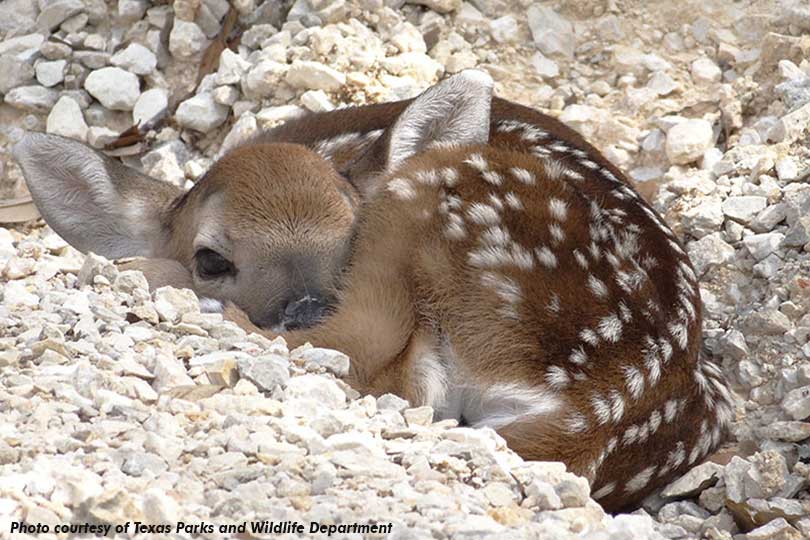By Gary Joiner
TFB Radio Network Manager
White-tailed deer fawns are hitting the ground in many parts of Texas, and habitat conditions are favorable for the offspring.
Warren Bluntzer, a private wildlife biologist and owner of Wildlife Consulting Services in Lometa, told the Texas Farm Bureau Radio Network the current fawning period is about normal for the state.
“Some of them are beginning to fawn, as we speak. And then we’ll have some later fawns, and that all depends on the buck-to-doe ratio in the particular areas that we’re dealing with,” Bluntzer said. “But it looks like it’s going to be a big, big fawn crop if the weather and the habitat hold.”
He said thermal cover has a lot to do with recruitment, and recruitment is what builds the dynamics of the population.
“If we remain where we’re at right now, and we can go into the summer with this vegetation, these fawns will have plenty of cover to be successful and recruit into the population,” Bluntzer said.
Does drop their fawns about 200 days after conception. White-tailed deer fawns average 6-8 lbs. at birth, and newborn fawns typically can stand and nurse within 30 minutes. Fawns are capable of walking within a few hours, and does generally move their fawns away from the birthing site within three hours. Does usually remain within 100 yards of their fawns, and fawns spend 90 percent of their time bedded for the first weeks of their lives, according to researchers.
Bluntzer said supplemental feed is a valuable management tool right now for the herd.
“The bucks are about a quarter out of their pedicles right now, so we’re feeding, and they’re consuming a lot. We’ll have a little bit of a lull coming up in a couple of weeks, and then the does really hit the feed heavily because of milk production,” he said.
Wildlife managers are always looking ahead, he added, and for him that means thinking about water for the summer.
“I’m always preparing for water shortages. What can I do to increase water absorption, water storage, and/or plan a new pond construction for the summer. I try my best to play the devil’s advocate when it comes to water,” Bluntzer said.

